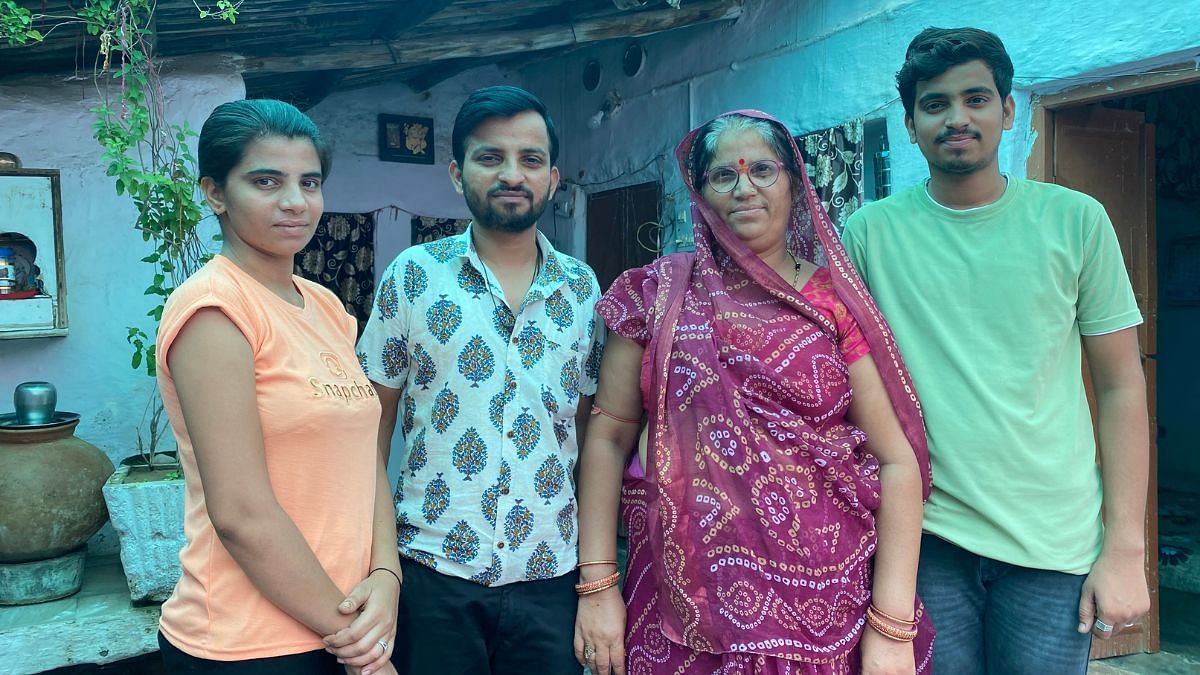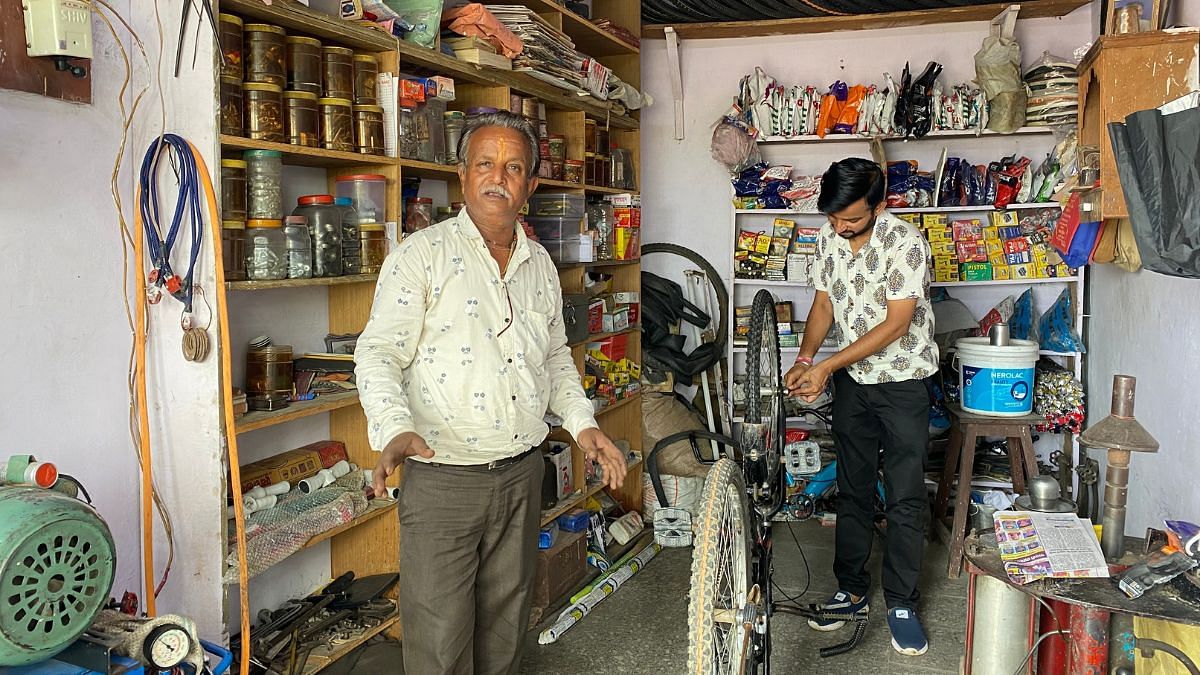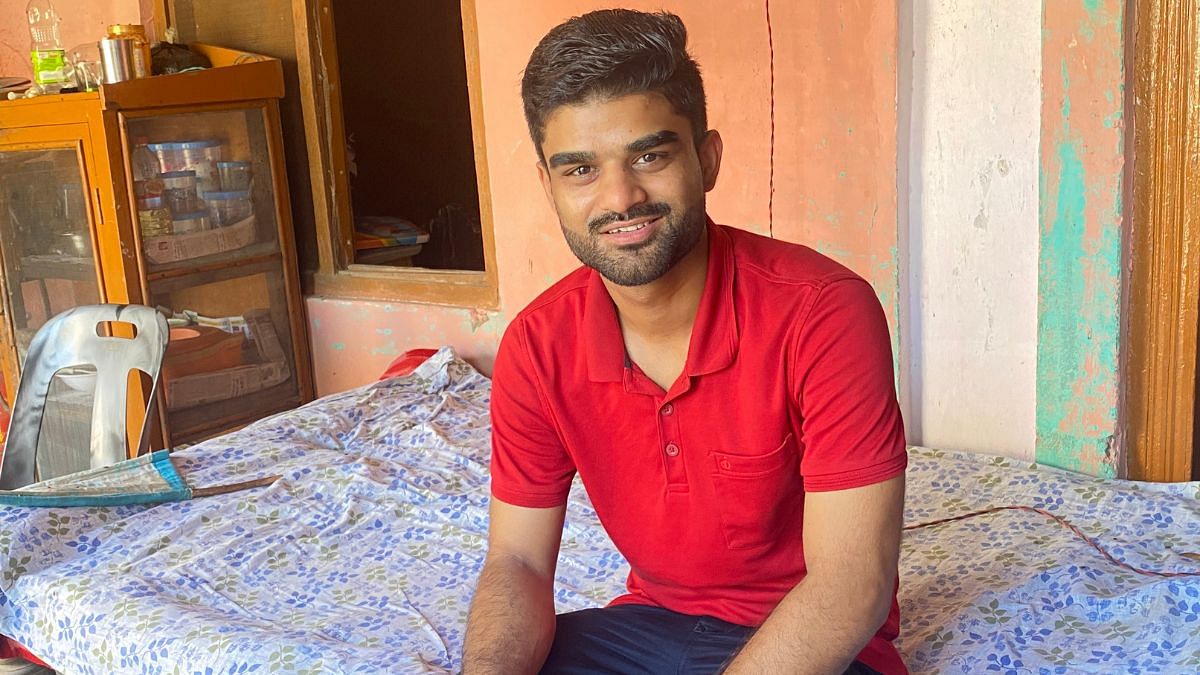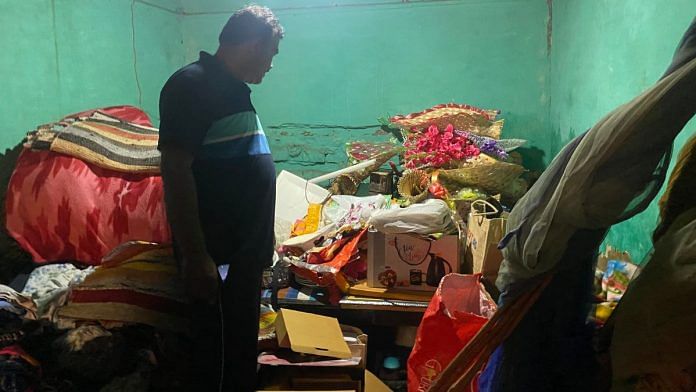Barmer: Sitting together in their small repair shop in Balotra, Rajasthan, Murari Nimbark and his 28-year-old son Bharat work in perfect harmony, not only when fixing bicycles but also when it comes to Bharat’s dream of becoming an IAS officer. To support Bharat’s dream, his mother Ganga Devi started making tiffins for extra income, while his younger sister stitched costumes for idols in a local temple. Nimbarak even took an informal loan of Rs 1.5 lakh to bankroll Bharat’s UPSC coaching.
For a family like Bharat’s, it takes a village to fulfil a near impossible dream.
Throughout India, families view civil services as a pathway out of poverty and towards prestige. The onus usually falls on the children, often the eldest son, to turn this dream into a reality. And so, loans are taken and money is squirrelled away to feed the great Indian coaching factories, which grind parallel to the country’s steel frame that is its bureaucracy.
The odds are stacked against them from the word go. Last year, out of the 11.35 lakh candidates who took the UPSC Preliminary exam, only 13,090 made the cut. The UPSC Mains and interviews further whittled away the number to just 933 successful candidates.
Yet, success stories of toppers overcoming tragedy and poverty feed the dreams of aspiring civil servants. Their heroes are not fictional X-Men or Batman or Spiderman but individuals like Govind Jaiswal, the son of a rickshaw puller who cracked the UPSC exam on his first attempt, or Suresh Kumar Ola, the son of a poor farmer who became an IAS officer. Reports about a hawker’s son securing the 45th rank in the UPSC are regarded as guideposts.
Data from Lal Bahadur Shastri National Academy of Administration (LBSNAA), the country’s top services training academy, suggests that at least half of the recruits each year are children of government officials. Out of 326 officer trainees in 2019 and 369 in 2017, parents of 42 were farmers.
Also read: State govts are getting into UPSC coaching game—not for business but as a strategy
A never-ending grind
Bharat left his parents’ home in Rajasthan’s Barmer for Mukherjee Nagar in Delhi in 2018. He couldn’t afford to live alone in the hub of UPSC coaching institutes and PGs, and so decided to share a small dingy room in Munirka Village with two fellow aspirants for a monthly rent of Rs 2,000.
Back home, his family made sacrifices to fund his studies and living expenses, which amounted to Rs 6,000 per month.
“We cut back on food supplies, including vegetables and milk, so we could send money to Bharat in Delhi. We did everything we could,” says the mother. Even his younger siblings chipped in by giving up new clothes during festivals.

Bharat found Delhi, with its bustling highways and towering high-rises, overwhelming. He met aspirants who had been living in Delhi for years, hailing from rich, English-speaking backgrounds, which sometimes felt intimidating. “People spend Rs 2,000 partying while this was a month’s rent for our [repair] shop,” Bharat said.
But he remained focussed on his ultimate goal—cracking the UPSC with minimal expenditure. He avoided rickshaws, walked wherever possible, and refrained from spending time ‘hanging out’ with friends.
But a year with his nose to the grindstone ended in tragedy.
“On the day of the exam in 2019, a car hit me. My right hand was broken and I also hurt my head,” Bharat said. “No one came to help. I took an auto and got myself admitted in hospital.”
In October 2020, Bharat took the National Eligibility Test (NET) and cleared it. But what followed was a series of unfortunate events.
“My father broke his leg and my mother had a heart attack. But the hard work for UPSC is still going on,” he said.
During Covid, his father had to close his repair shop, leaving the family in financial turmoil. To make ends meet, Bharat became a vegetable vendor. That’s when neighbours started making fun of him.

“They taunted me by saying, ‘You went to Delhi to become an IAS officer and now sell vegetables.’ I didn’t say anything but it hurt,” Bharat said, with tears in his eyes.
The family continues to repay the loan they took in 2018—a monthly instalment of Rs 2,500. His sister had to drop out after Class 12, and his younger brother has just started dreaming of cracking the UPSC. “For that too, we will have to take a loan, but he will become a police officer,” the mother said.
Bharat has not given up yet. He is currently studying in Jaipur, where he works part-time at a coaching institute and sends money home.
“We are not defeated. We will not lose courage,” said his father.
Also read: Jain, Muslims, Baniyas, Dalits—communities helping their own crack UPSC exams
Betting on land
Unlike Bharat, 27-year-old Ashish Singh from Darbhanga, Bihar, is facing pressure to return home. He left for Delhi in 2021 to join a coaching institute, but missed the UPSC Prelims cut-offs twice—-the first time by six marks and the second attempt by three marks.
His farmer father had sold two bighas of land, but that money has run out and he is unable to send anymore. Singh is not ready to give up just yet.
“I gave three years to this exam, but now my priority is to earn money and look after my family,” says Ashish, who has taken a part-time job at a library and earns Rs 11,000 per month.
But Sohanlal Singh wants his elder son back home. “I wanted to see him become an IAS officer but many years have passed. He is one of the smartest and brightest kids. He will find a decent job here,” Sohanlal said over the phone.
Twenty-four-year-old Deepak Sahu’s parents have faith that their son will make them proud. His father, an Uber-Ola driver in Delhi NCR, took a loan of Rs 2 lakh on the family’s farmland in their hometown in Jharkhand to fund his coaching classes.
“My father earns about Rs 20,000 a month, of which he gives Rs 10,000 to me for expenses,” says Deepak, who spends 12 hours at the Samkalp Institute’s library in RK Puram, leaving his shared room with his father at 6 am every day.
Deepak is yet to crack UPSC after three attempts but he hasn’t lost hope.
“I am an OBC student so I have nine attempts. I will give all of them if I have to,” he says.
Also read: An ‘affordable’ UPSC dream is taking off in small-town India. It can change the steel frame
Beyond the UPSC dream
Some coaching institutes have started sponsoring students from economically disadvantaged backgrounds. For example, StudyIQ, an online coaching institute, waived tuition fees for a hundred students who cleared the UPSC Prelims this year.
On an average, a year-long course at a coaching institute in Delhi costs around Rs 1.5-Rs 2 lakh. This does not include accommodation or living expenses.
“We provide free coaching and bear the expenses of their stay and food,” says Mohit Jindal, co-founder of StudyIQ.
Several state governments, including West Bengal and Uttar Pradesh, have also established their own ‘affordable’ UPSC coaching centres, offering free classes and study material, or providing merit-based scholarships.
Moin Ahmed, a successful UPSC candidate after four attempts and the son of a bus conductor from Uttar Pradesh, understands the struggles firsthand. His family of seven in Moradabad survived on a monthly income of Rs 10,000-Rs 12,000. Now, when institutes invite him for guest lectures or motivational talks, he proposes sponsoring students he recommends.

Ahmed, who ranked 296 in UPSC 2022, has already helped waive the coaching fees for 20 aspirants.
“I have seen the struggle, so I know that even waiving the coaching fees helps a lot. All these children are intelligent and serious aspirants,” says Ahmed.
The IAS officer who is now a local celebrity in Moradabad realises what it takes to live the UPSC dream and clearing the exam was just the beginning for him, not the end.
(Edited by Prashant)



